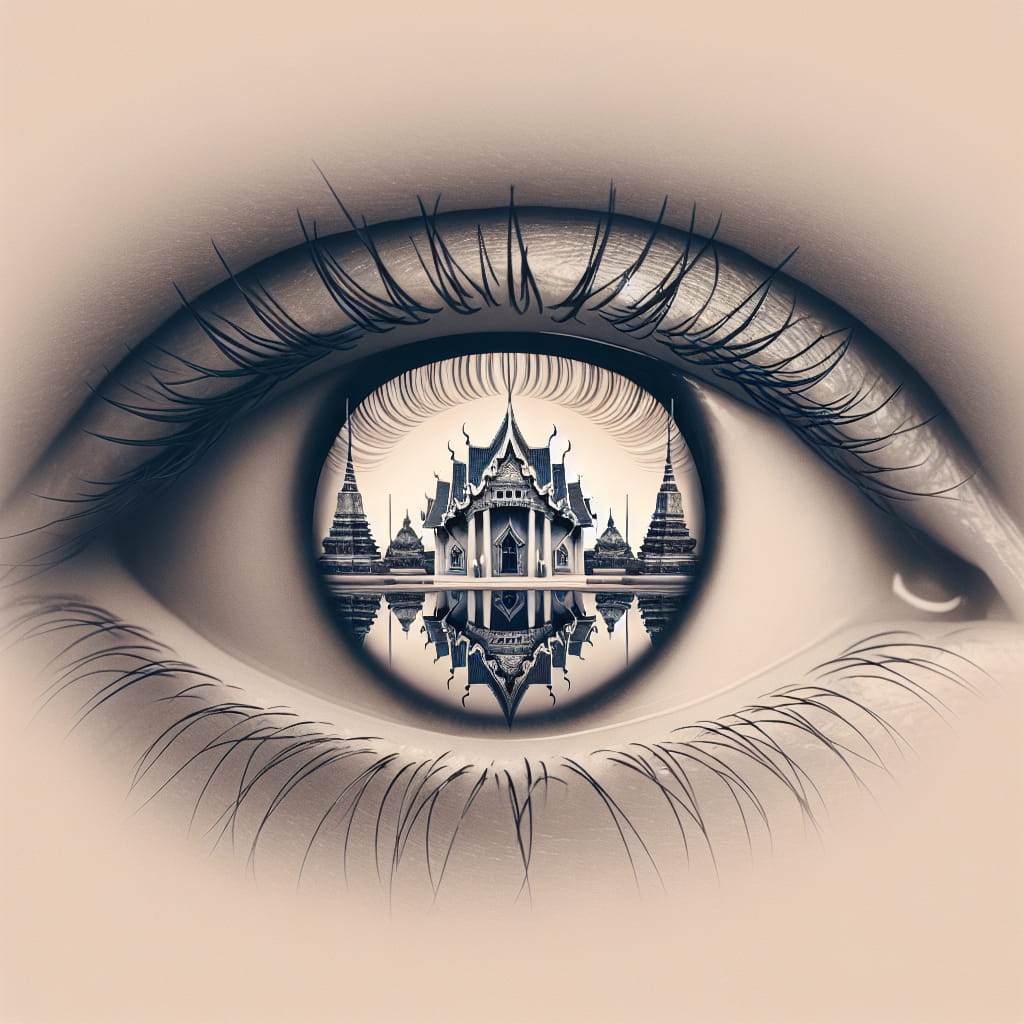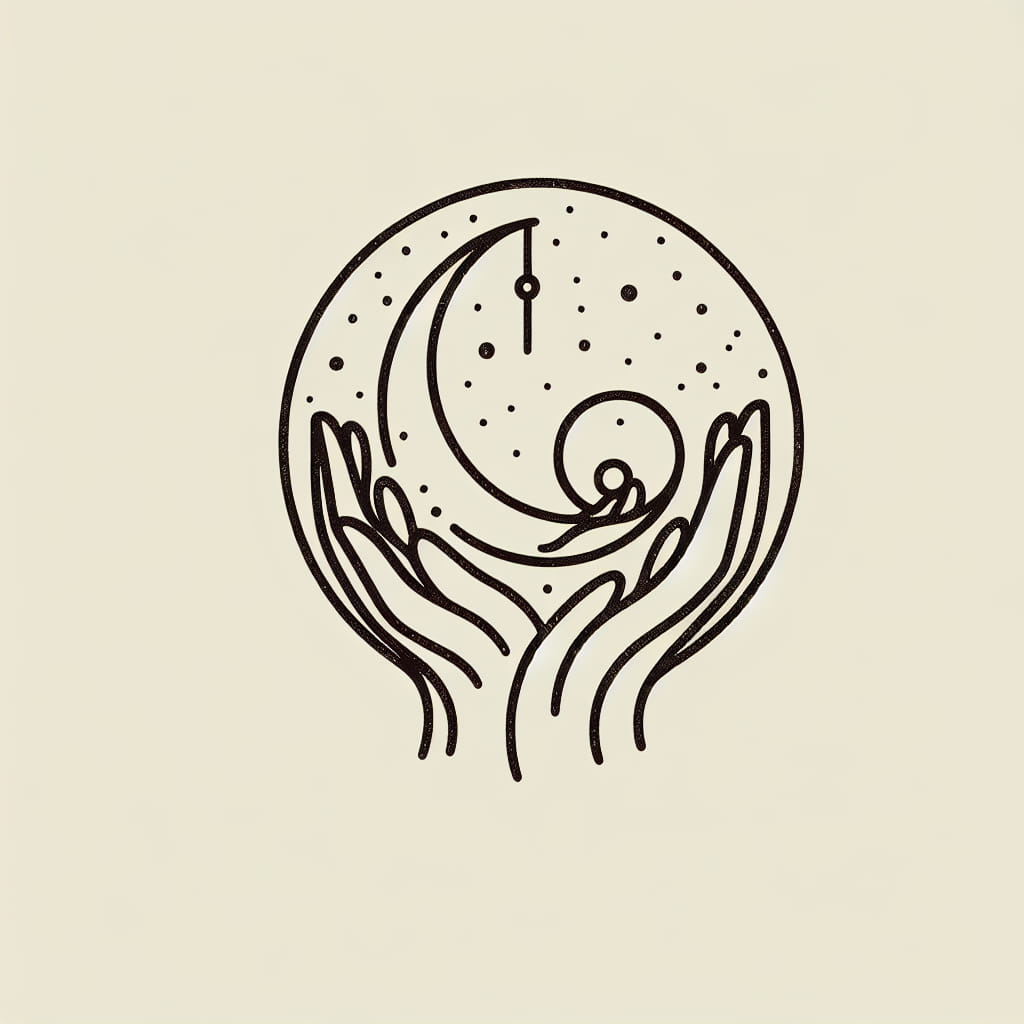· word of the day · 4 min read
Unlocking Thai Culture: The Profound Meaning Behind the Word กระจกตา
Explore the depths of Thai culture and language learning through the lens of obscure words like กระจกตา which reflect deep cultural values and enhance conversational skills

Discovering the Depths of Language Through Obscure Words
When diving into a new language, it’s often the most unusual words that give us the richest insights into a culture’s nuances, humor, and values. For learners of Thai, a language known for its complex script and tonal nature, uncovering these hidden gems can be particularly rewarding. Not only do they enhance conversational skills, but they also offer a deeper appreciation of the cultural context that shapes the language.
Today, let’s explore an intriguing Thai word that opens a window into traditional beliefs and the Thai way of life: กระจกตา (pronounced: kra-jòk taa).
What Does กระจกตา Mean?
Literally translated, กระจกตา means “eye mirror.” At first glance, this might sound like a poetic way of describing the eye, but its significance goes much deeper in Thai culture. The term is used metaphorically to describe someone who reflects one’s emotions or soul, akin to the saying “the eyes are the window to the soul.” This expression underscores the Thai value of emotional connection and understanding, reflecting how deeply interpersonal relationships are valued in Thai society.
Cultural Significance and Usage
The use of กระจกตา in everyday conversation or literature is not just a linguistic expression but a cultural artifact. It reveals the Thai people’s perception of visibility and transparency in human interactions. When someone is referred to as another’s กระจกตา, it implies a deep, almost spiritual understanding between individuals. It’s a term of endearment that signifies closeness and profound bonding.
Example Sentences
- เธอเป็นกระจกตาของฉันจริงๆ (ter bpen kra-jòk taa kǎwng chǎn jing-jing)
- “You truly are the mirror of my eye.”
- ในความรัก, การเป็นกระจกตาให้กันคือสิ่งสำคัญ (nai kwaam rák, gaan bpen kra-jòk taa hâi gan keu sìng sǎm-khan)
- “In love, being each other’s eye mirror is important.”
Idiomatic Expressions and Sayings
The concept of กระจกตา is often woven into Thai idioms and sayings that emphasize understanding and clarity in relationships. For instance, a common related saying might be:
- ดวงตาเป็นหน้าต่างของหัวใจ (duang taa bpen nâa dtàang kǎwng hǔa jai)
- “The eyes are the windows of the heart.”
This saying, much like the use of กระจกตา, highlights the importance of eyes in revealing one’s true feelings and intentions. It suggests that just as windows allow us to see through them, eyes allow us insight into someone’s emotional or mental state.
Role in Literature and Folklore
In Thai literature, กระจกตา often appears in romantic or deeply philosophical contexts. Poets and writers use it to depict moments of personal revelation or intimate connection between characters. It can also be found in traditional stories and folklore, where the purity of a character’s eyes reflects their moral integrity or spiritual purity.
This concept is not just limited to written literature but is also prevalent in Thai visual and performing arts, where the symbolism of the eye plays a crucial role in conveying emotions and narratives.
Enriching Language Learning and Cultural Understanding
Learning words like กระจกตา is not merely about expanding vocabulary; it’s about immersing oneself in the Thai way of thinking and feeling. Each obscure word learned is like uncovering a piece of the cultural puzzle, allowing language learners to see beyond the surface of everyday conversations and into the heart of what it means to be Thai.
Moreover, engaging with such words encourages learners to participate in more meaningful dialogues with native speakers. It shows a respect and appreciation for the culture that goes beyond basic language skills, fostering deeper connections and understanding.
Conclusion
In the journey of language learning, embracing the obscure and the unusual can be incredibly fulfilling. Words like กระจกตา offer more than just new terms to use; they offer stories, emotions, and a glimpse into the collective psyche of a culture. For anyone learning Thai, taking the time to explore such words can enrich your understanding not only of the language but also of the people who speak it.
As we continue to explore Thai, let’s remember that every word carries a weight of history, culture, and emotion. By learning these, we don’t just speak a language—we live it.




